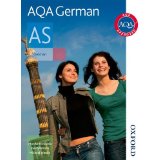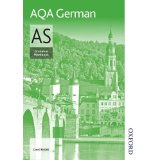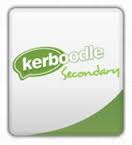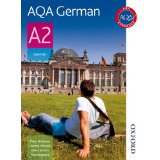



Mrs L Bould - Head of Department - lvb@bws.wilts.sch.uk
Mrs L Drummond – Teacher of German - lcd@bws.wilts.sch.uk
Every student is allocated a First Foreign Language (German, French or Spanish) in Year 7. Languages are taught in form groups. All pupils study this First Language up to GCSE in Year 11. Students can then continue with German, French or Spanish into A-Level
In Year 9, students are allocated a Second Foreign Language and complete a one-year foundation course. Pupils with an outstanding talent for languages will have the opportunity of taking two languages up to Year 11. The foundation course in their Second Language offers enough core knowledge for a gifted linguist to start a GCSE course.
Our comprehensive Key Stage 3 MFL courses guarantee our students solid preparation to face the challenge of the new GCSEs introduced in September 2016.
Learning German at Bishop’s is all about:
The text book issued to students is called "Stimmt 1" and boys may also wish to purchase "Stimmt 1 Arbeitsheft B" for help with class and homework tasks.
Year 7 Curriculum Plan
Beginners German is taught for 4 lessons per week. The full list of topics covered is listed below:-
| Topic | Grammar |
| Greetings | Present tense |
| Numbers & alphabet | Using meine(e) & dein(e) |
| Saying where you live | Pronouns |
| Describing your character | Using kann + infinitive |
| Family & pets | Adjectives and nouns |
| Sports & leisure activities | Using gern |
| Mobiles & computers | Word order |
| School subjects | Using the present tense to talk about the future |
| Days & times | Using weil |
| School facilities & teachers | Using sein & ihr |
| Places in a town | Prepositions |
| Food & drink | Using es gibt |
| Holidays | Future tense |
The text book issued to students is called "Stimmt 2"
There are 2 lessons per week, the full list of topics covered is listed below:-
Year 8 Curriculum Plan (1st Language)
| Topic | Grammar |
| Places in a town | Imperfect tense |
| Holidays | Perfect tense |
| Travel | Modal verbs |
| Weather | Prepositions |
| TV & Film | The imperative |
| Reading | Adjectives & nouns |
| Food & drink | Reflexive verbs |
| Recipes | Separable verbs |
| Healthy Lifestyles | Using wenn |
| Rules | Future tense |
| Daily routine | |
| Holidays & festivals | |
| Clothes & uniforms |
Year 8 Curriculum Plan (2nd Language)
Students taking German as a second language will study a condensed version of the topics in Year 7 and Year 8 first language. Boys may also wish to purchase "Stimmt 2 Arbeitsheft B" for help with class and homework tasks.
| Topic | Grammar |
| Greetings | Present tense |
| Numbers & alphabet | Using meine(e) & dein(e) |
| Saying where you live | Pronouns |
| Describing your character | Using kann + infinitive |
| Family & pets | Adjectives and nouns |
| Sports & leisure activities | Using gern |
| Mobiles & computers | Word order |
| School subjects | Using the present tense to talk about the future |
| Days & times | Using weil |
| School facilities & teachers | Using sein & ihr |
| Places in a town | Prepositions |
| Food & drink | Using es gibt |
| Holidays | Future tense |
First and second language students to follow the same course with allowances in pace made for second language students to catch up on grammar and basics.
The text book issued to students is called "GCSE German" and boys may also wish to purchase "Edexcel International GCSE German: EDEXCEL Certificate in German Grammar Workbook" for help with class and homework tasks.
The full list of topics covered is listed below:-
| Topics | Grammar |
| Food & drink | Present tense |
| Healthy Lifestyles | Perfect tense |
| Discussing daily routine | Imperfect tense |
| Directions | Future tense |
| Describing festivals and holidays | Conditional tense |
| Self, family & friends | Cases |
| Relationships | Separable verbs |
| House & home | Subordinate conjunctions |
| Daily routine | Prepositions |
| Adjective endings | |
| Modal verbs | |
| Second Language Only: | Word order |
| Places in a town | |
| Holidays |
GCSE German is studied using The Edexcel Certificate (iGCSE). The text book issued to students is called "GCSE German" and boys may also wish to purchase "GCSE German Grammar Book” for help with class and homework tasks.
The iGCSE vocabulary list can be downloaded by clicking here
The Revision Tips document can be downloaded by clicking here
There are four components to the iGCSE exam which are as follows:-
The full list of topics covered are listed below:-
| Year 10 Topics | Grammar |
| Topic Area A | Nouns |
| Home and abroad | Articles |
| Life in the town and rural life | Adjectives |
| Weather and climate | Adverbs |
| Travel, transport and directions | Quantifiers/intensifiers |
| Holidays and tourist information | Pronouns |
| Services (eg telephone, bank, post office) | Verbs: regular and irregular forms of verbs |
| Customs and religion | Infinitive constructions |
| Everyday life, traditions and communities in a German-speaking country | Separable and inseparable verbs |
| Modal verbs | |
| Topic area C | Tenses |
| House, home and daily routines | Prepositions |
| Types of home | Clause structures |
| Information about self, family and friends | Conjunctions |
| Helping around the house | Numbers, quantity, dates and time |
| Food and drinks | |
| Topic area E | |
| Social activities, fitness and health | |
| Special occasions | |
| Hobbies, interests, sports and exercise | |
| Shopping and money matters | |
| Accidents, injuries, common ailments and health issues |
| Year 11 Topics | Grammar |
| Topic Area B | Nouns |
| Education and employment | Articles |
| Childhood | Adjectives |
| School life and routine | Adverbs |
| Work/careers | Quantifiers/intensifiers |
| Future plans | Pronouns |
| Regular and irregular forms of verbs | |
| Topic Area D | Infinitive constructions |
| The modern world and the environment | Separable and inseparable verbs |
| Current affairs and social issues | Modal verbs |
| Environmental issues | Tenses |
| The media (eg TV, film, radio, newspapers) | Prepositions |
| Information and communication technology (eg internet, mobile phones, email) | Clause structures |
| Conjunctions | |
| Numbers, quantity, dates and time |
Year 12 German students follow the AQA AS examination
The text books used are called “AQA AS German Student Book” and “AQA A Level Grammar Book”. Students will also have access to the online software “Kerboodle”.



The full list of topics covered are listed below:-
| Topics | Grammar |
| Media | Perfect tense |
| Television | Indefinite pronouns |
| Advertising | Interrogative adjectives |
| Communication technology | Conditional sentences with würde + infinitive and the imperfect subjunctive |
| Expressions in the infinitive | |
| Popular Culture | Possessive adjectives |
| Cinema | Pluperfect tense |
| Music | Form and use the passive |
| Fashion/trends | Prepositions and cases |
| Future tense | |
| Healthy Living/Lifestyle | Adjectival endings |
| Sport/exercise | Compound tenses (1) Future perfect |
| Health and well-being | Compound tenses (2) conditional and conditional perfect |
| Holidays | Subjunctive 1 & 2 |
| Impersonal expressions | |
| Family/Relationships | Perfect tense |
| Relationships within the family | Imperfect tense |
| Friendships | Genitive case |
| Marriage/partnerships | Word order |
| Form questions | |
| Norminative, accusative, dative | |
| Modal verbs |
Year 13 German students follow the AQA A2 examination
The text books used are called “AQA AS German Student Book” and “AQA A Level Grammar Book”. Students will also have access to the online software “Kerboodle”.



The full list of topics covered are listed below:-
| Topics | Grammar |
| Environment | Fixed and dual case prepositions |
| Pollution | Prepositions |
| Energy | Adjective endings |
| Protecting the planet | Comparative and superlative of adjectives |
| Interrogative adjectives & interrogative adverbs | |
| The Multicultural Society | Personal, reflexive and relative pronouns |
| Immigration | Pluperfect tense |
| Integration | Complex adjectival phrases |
| Racism | Future tense |
| Subjunctive to form conditional tense | |
| Contemporary Social Issues | Subordinate conjunctions |
| Wealth and poverty | Future tense |
| Law and order | Subjunctive in indirect speech |
| Impact of scientific and technological progress | Word order |
| Future perfect | |
| Cultural Topic | Conditional perfect |
| A period of 20th century history from a target language-speaking country/community | Imperfect tense |
| A director, architect, musician or painter from a target language-speaking country/community | Perfect tense |
| Passive | |
| Impersonal verb constructions |